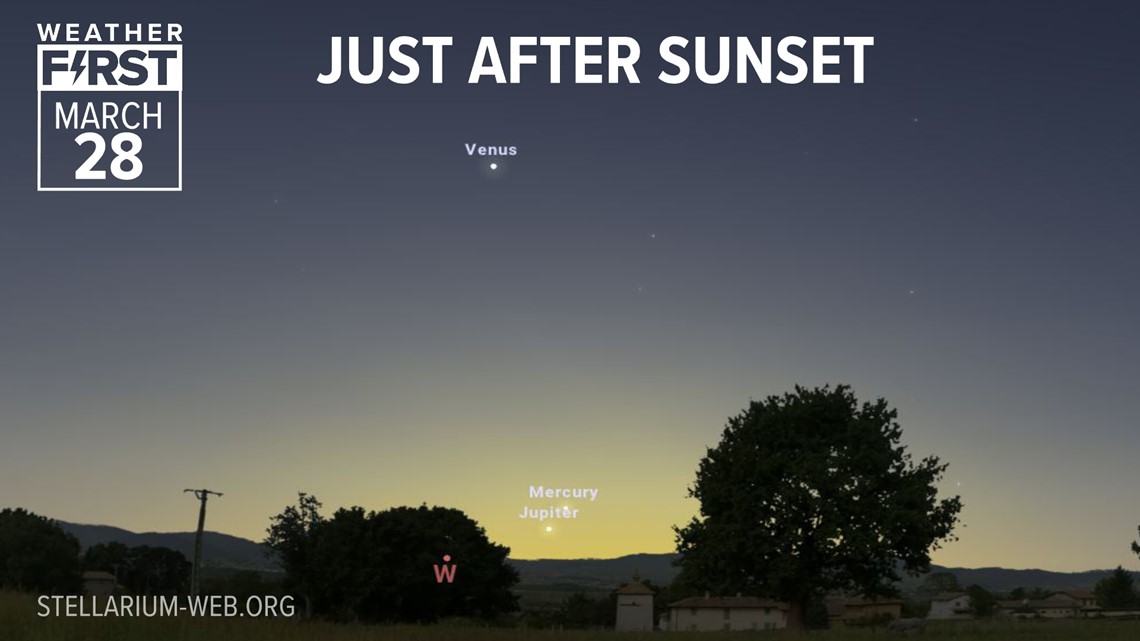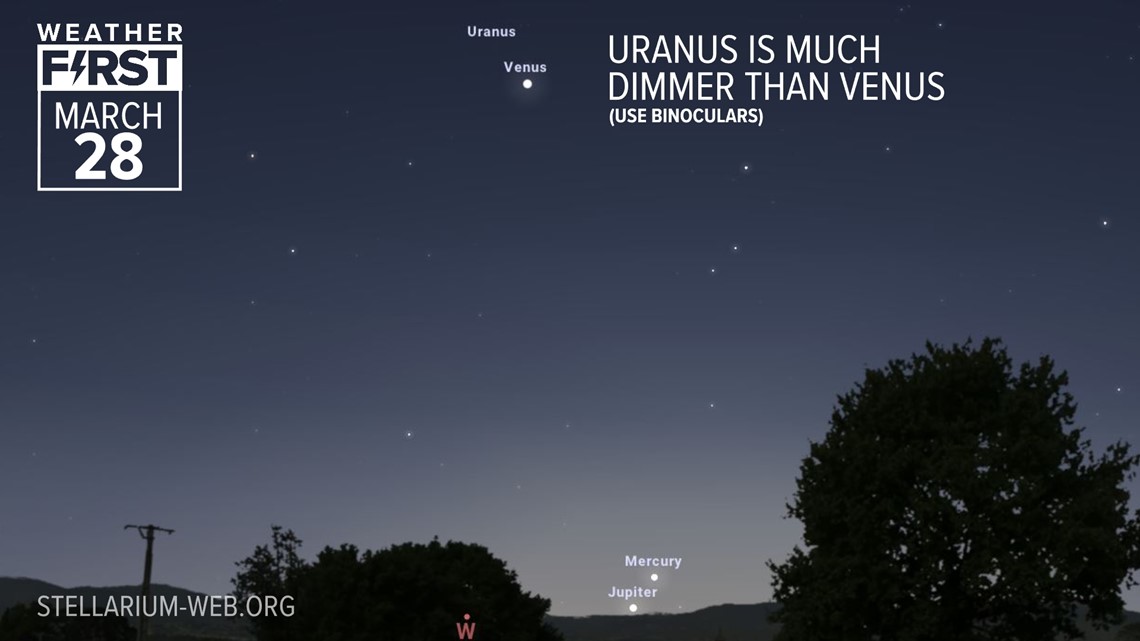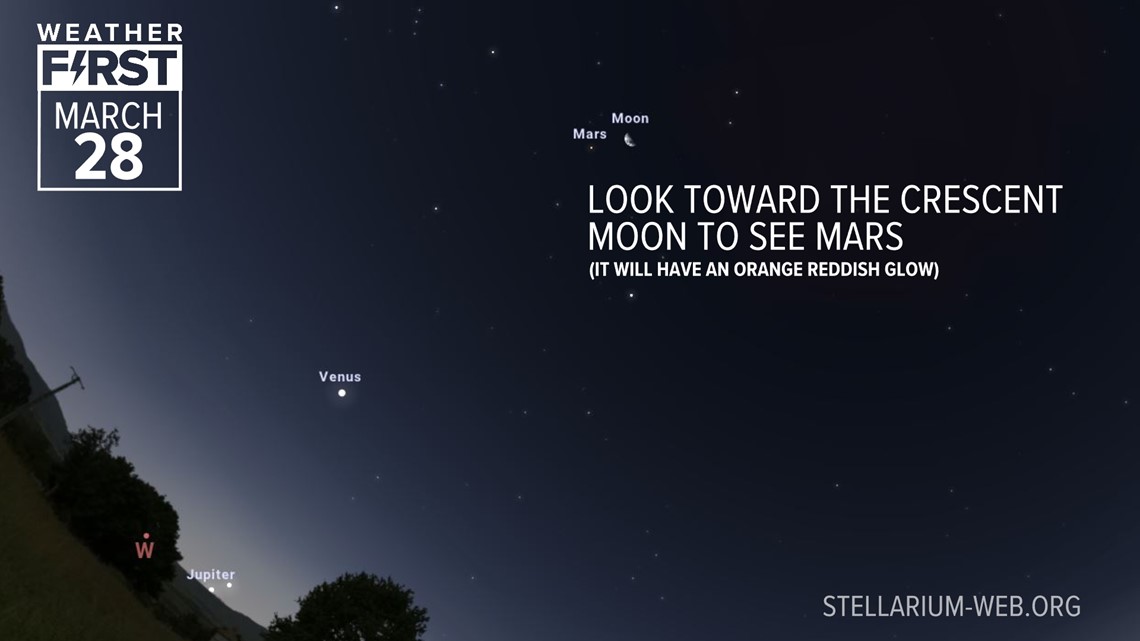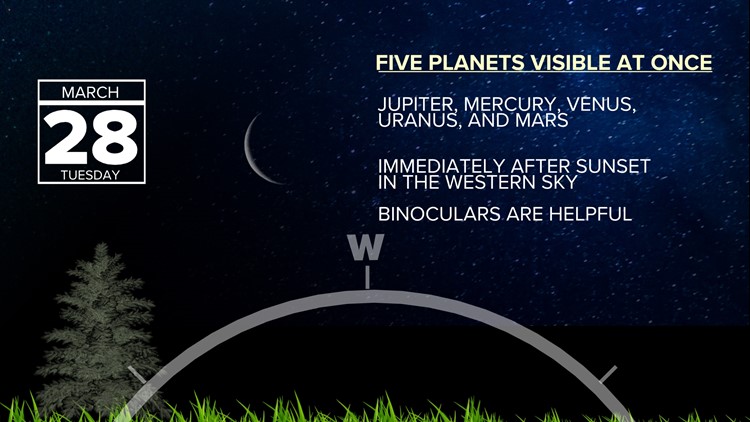ST. LOUIS — As we near the end of March, something special is about to happen in our night sky. Five planets will be simultaneously visible a few days leading up to and after March 28. Jupiter and Mercury are near the western horizon, aligned such that they are visible right after sunset for a short time. Venus is bright and higher in the sky. Venus is notably the brightest and is commonly seen in the night sky.
As the sun drops farther below the horizon and the sky grows darker, the seventh planet from the Sun, Uranus may be seen near Venus. It is much dimmer than Venus. You may need binoculars to see Uranus.


Uranus is an "ice giant" planet. NASA says most of its mass is a hot, dense fluid of "icy" materials – water, methane and ammonia – above a small rocky core. It is about 1.9 billion miles from the Sun.


As we go higher in the sky, the Mars and the waxing crescent Moon appear close together. The night of March 29, the Moon reaches it's first quarter stage. Mars will be dimmer than Venus as is usually the case. It will have it's classic orange-reddish glow.


The biggest challenge to viewing the planets may be our finicky March weather. At times, clouds will move across the metro St. Louis area through the end of the month. There should be opportunities on at least one night for most of us to view the planets. Clouds should be clearing Tuesday evening. Wednesday evening appears to be a good viewing opportunity as well.
Your best bet is to get away from city lights. Many Missouri and Illinois state parks are located in more rural areas where light pollution is not a problem. In the immediate metro area, St. Charles County has an astronomy site at Broemmelsiek Park near Defiance. In fact, if the weather permits, every Friday night, members of the Astronomical Society of Eastern Missouri (ASEM) offer public stargazing events beginning at dusk.



